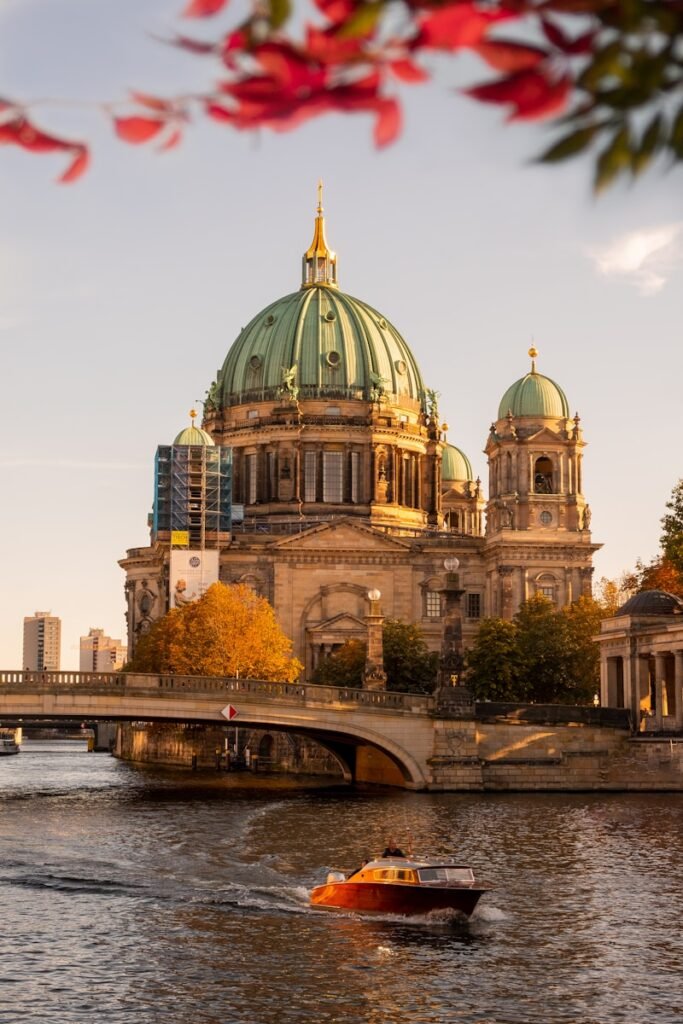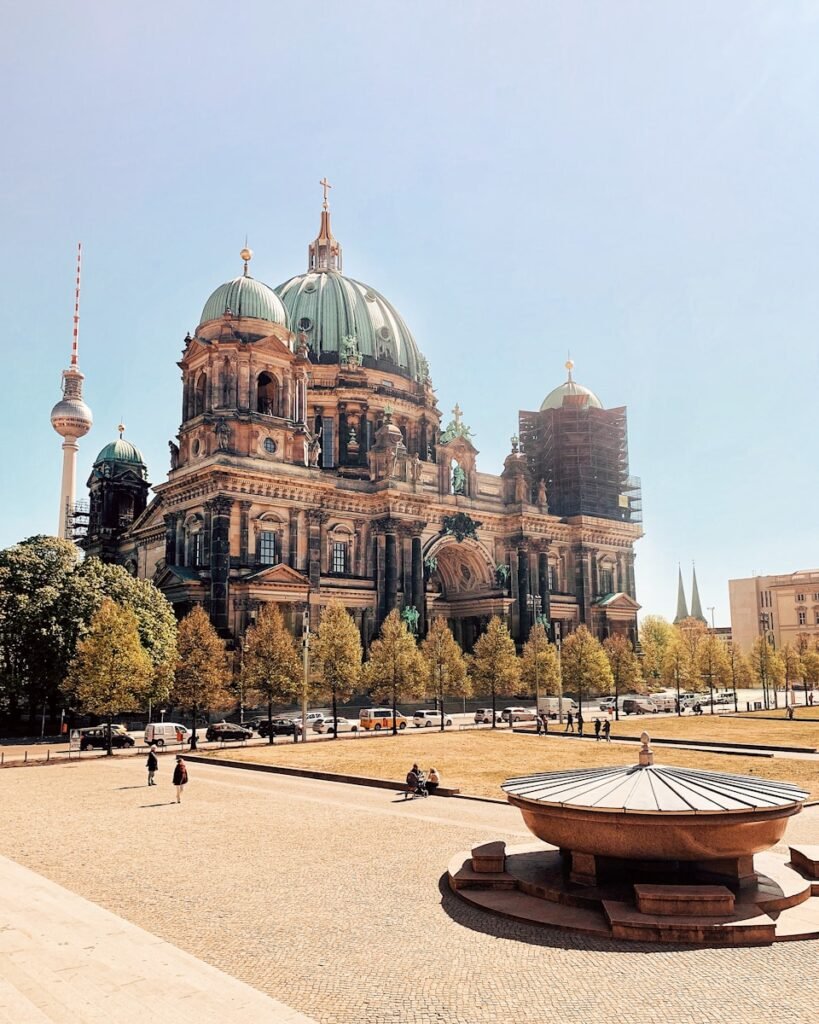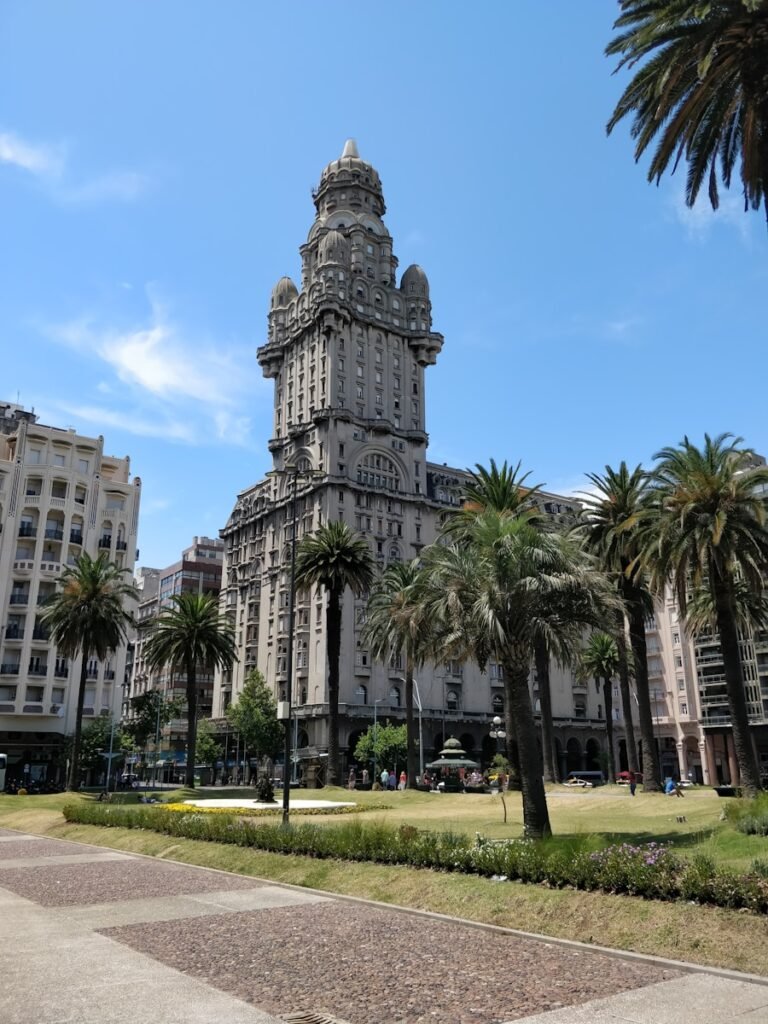How to Get a Germany Digital Nomad Visa in 2025
Have you ever dreamed of working from a cozy café in Berlin or surrounded by lush Bavarian forests? As remote work continues to soar, Germany is quickly becoming a hotspot for digital nomads looking to balance productivity with vibrant cultural experiences. The great news? Germany offers a visa specifically designed for freelancers and self-employed professionals.
In this guide, I’ll break down what you need to know about the Germany digital nomad visa—who it’s for, how to apply, and tips to avoid common pitfalls. By the time you’re done reading, you’ll feel confident and ready to kick-start your adventure in Germany.
What is the Germany Digital Nomad Visa?
Germany’s digital nomad visa, also commonly referred to as the freelance visa (Freiberufler visa), is a special residence permit designed for self-employed individuals, freelancers, and independent contractors looking to live and work in Germany. This visa is part of Germany’s commitment to fostering innovation, creativity, and entrepreneurial spirit within its borders.
Who Qualifies?
The Germany freelance visa caters to individuals who work independently and have no direct employment contract with a company in Germany. This includes:
- Freelancers: Professionals like writers, graphic designers, programmers, photographers, and translators.
- Consultants: Advisors who work independently across industries such as marketing, business strategy, or IT.
- Remote Workers: People who work for international clients or companies while maintaining a flexible location-independent lifestyle.
It’s a fantastic opportunity for people looking to combine their professional goals with Germany’s rich culture and high standard of living.

How is Germany’s Freelance Visa Different from Digital Nomad Visas in Other Countries?
While many countries offer digital nomad visas, Germany’s freelance visa stands out due to its dual focus on creative professions and economic contributions. Here’s what sets it apart:
- Dual Classification:
Germany differentiates between freelancing (Freiberufler) and self-employment (Gewerbetreibender), with specific pathways for each type.- Freiberufler: Includes creative, academic, or scientific professions such as artists, journalists, and researchers.
- Gewerbetreibender: Applies to more commercial or business-oriented activities.
- Integration with Local Economy:
Unlike typical digital nomad visas that might restrict interactions with the local economy, the freelance visa allows for deeper integration, such as collaborating with German clients, companies, or institutions. - Taxation and Residency Benefits:
Freelancers with this visa contribute to the German tax system, making them eligible for local healthcare and social benefits — something most digital nomad visas do not offer. - Flexibility and Permanence:
Germany’s freelance visa opens doors to longer-term residency, and in some cases, pathways to permanent residency or even citizenship, if specific conditions are met.
If you’re someone with a flexible job or skills that align with Germany’s demand for freelancers, this visa might just be the perfect fit for pursuing a rewarding professional and personal life in Germany!
Why Choose Germany as a Digital Nomad?
Germany has long been a sought-after destination for freelancers and remote workers, and for good reason. The country offers an incredible blend of economic opportunity, affordability, and cultural richness that makes it a dream location for digital nomads. Here’s a closer look at what makes Germany an ideal choice:
A Thriving Economy with Ample Opportunities
Germany boasts the largest economy in Europe, renowned for its innovation, stability, and global influence. For digital nomads, this means:
- Diverse Career Opportunities: Freelancers and consultants can tap into a robust market spanning industries such as technology, media, arts, and finance.
- Demand for Skilled Professionals: There’s a consistent demand for freelancers, especially in sectors like IT, graphic design, digital marketing, translation, and creative writing.
- Proximity to Business Hubs: Berlin, Munich, Frankfurt, and Hamburg are just a few cities teeming with opportunities and networking potential for independent workers.
Affordable Cost of Living for European Standards
While Germany is not the cheapest country in Europe, it offers an excellent balance between cost and quality, especially compared to Western Europe’s high-expense hubs.
- Reasonable Housing Costs: Accommodation in cities like Leipzig, Cologne, or even Berlin remains more affordable than cities like Paris, London, or Amsterdam.
- Affordable Essentials: Food, public transportation, and utilities are generally well-priced, allowing you to live comfortably without overspending.
- Opportunities for Saving: With Germany’s high average income potential for freelancers, managing expenses while enjoying a great lifestyle is more than feasible.

Exceptional Healthcare and Infrastructure
Germany’s commitment to efficiency extends to its healthcare and infrastructure, making it one of the most comfortable places for digital nomads.
- World-Class Healthcare: Germany’s healthcare system is frequently ranked among the best globally, with accessible services and comprehensive insurance coverage for residents, including freelancers.
- Reliable Public Services: From punctual public transportation to excellent internet speeds, Germany ensures you can work and travel with ease and reliability.
- Safety and Stability: Germany is consistently rated as one of the safest countries in the world, providing a secure environment for solo travelers and families alike.
A Vibrant Culture and High Quality of Life
Germany isn’t just about work; it’s also a country rich in experiences, offering digital nomads a vibrant and rewarding lifestyle:
- Cultural Diversity: Whether you’re wandering the creative streets of Berlin, exploring historic castles in Bavaria, or soaking in the eclectic vibes of Hamburg, each region has a unique charm.
- Outdoor Adventures: Germany’s natural landscapes — from the Black Forest to the Alps and scenic rivers like the Rhine — are perfect for hiking, skiing, or leisurely getaways.
- Festivals and Traditions: From Oktoberfest in Munich to Christmas markets in Cologne, Germany’s events showcase a blend of tradition and fun that keeps you inspired year-round.
- Sustainability and Work-Life Balance: Germany’s emphasis on eco-friendly living and balanced work schedules aligns perfectly with the digital nomad ethos of intentional, stress-free living.
Combining economic strength, cultural vibrancy, and top-notch amenities, Germany isn’t just a destination for digital nomads — it’s a place to thrive, both personally and professionally.
Eligibility Criteria for the Germany Digital Nomad Visa
Germany’s digital nomad visa, officially known as the freelance visa (Freiberufler visa), offers freelancers, remote workers, and independent professionals the opportunity to live and work in one of Europe’s most dynamic countries. However, securing this visa requires meeting several specific criteria to demonstrate your suitability and readiness for life as a freelancer in Germany. Here’s a detailed breakdown:
Age, Nationality, and Occupation Requirements
- Minimum Age: While there’s no strict minimum age mentioned in the visa guidelines, applicants must be legal adults (18 years or older) and capable of managing their professional and financial responsibilities.
- Nationality: Citizens of EU/EEA countries don’t require a visa to work in Germany. For others, including U.S., Canadian, Australian, and many other nationalities, applying for the freelance visa is necessary.
- Qualifying Occupations: Not all professions are eligible. Germany’s freelance visa primarily supports fields such as:
- Art, culture, and journalism (e.g., writers, designers, photographers, musicians).
- Scientific and technical professions (e.g., engineers, IT specialists, consultants).
- Educational services (e.g., language teachers, tutors).
Professions outside these categories may still qualify but could require additional justification of their economic or cultural value.

Proof of Self-Employment or Freelance Status
One of the cornerstone requirements for this visa is proving that you’re genuinely self-employed or working as a freelancer. Here’s how to establish your status:
- Client Contracts: Provide contracts or letters of intent from potential or existing clients based in Germany or internationally.
- Portfolio of Work: Showcase your past projects or a professional portfolio to demonstrate your expertise and credibility in your field.
- Business Plan: For those planning to expand their freelancing activities in Germany, submitting a concise business plan can help strengthen your application.
Financial Stability and Earning Minimums
Germany emphasizes financial self-sufficiency for visa applicants to ensure they can sustain themselves without relying on government aid. This involves:
- Minimum Income Requirements: While there’s no universal income threshold, freelancers generally need to prove they can cover living expenses, typically around €1,000–€1,500 per month. This amount varies based on the cost of living in the region where you plan to reside.
- Savings Evidence: Demonstrating financial stability through savings or assets can bolster your application, especially during periods of fluctuating freelance income.
- Health Insurance Coverage: Proof of valid health insurance is mandatory, and it must meet German standards, covering both routine care and emergencies.
The Value of Language Skills
Although it’s possible to navigate Germany with English, having at least basic German language skills can significantly improve your experience and ease the application process:
- Administrative Processes: Most official documents and interactions, especially at immigration offices, are conducted in German. Understanding basic phrases or hiring a translator can make the process smoother.
- Client Relationships: If your freelancing work involves German clients or audiences, even limited proficiency in German can build trust and rapport.
- Integration: Learning the language shows commitment to integrating into German society, which can reflect positively during your application process.
Meeting these criteria is essential for a successful application. Thorough preparation, backed by accurate documentation and a clear understanding of what the visa entails, will ensure your path to freelancing in Germany is as smooth as possible.
How to Apply for a Germany Digital Nomad Visa
Securing the Germany Digital Nomad Visa involves a step-by-step process that requires careful preparation and submission of several key documents. This visa process is straightforward, but ensuring all the required details are in place will help avoid delays. Here’s a comprehensive guide to applying for the freelance visa:
1. Gathering the Required Documents
Before starting your application, make sure you have all the necessary documents to prove your eligibility. Here’s what you’ll typically need to provide:
- Proof of Self-Employment: This can include contracts with clients, letters of intent, or a portfolio of past work. You’ll need to prove you’re working as a freelancer or independent contractor in a profession that qualifies for the freelance visa.
- Evidence of Financial Stability: Bank statements, contracts showing future or current income, and proof of savings may be requested. It’s crucial to demonstrate you have sufficient funds to support yourself while living in Germany.
- Health Insurance Coverage: Germany requires that all applicants have valid health insurance that meets the country’s standards. This can either be private or public health insurance.
- Proof of Accommodation: Provide proof of where you’ll be living in Germany, which could be a rental agreement or accommodation booking.
- Passport and Visa Photos: A valid passport and two biometric photos that comply with German visa regulations are essential.
- Cover Letter or Business Plan (optional but helpful): If you’re starting your freelance business in Germany, a cover letter explaining your goals, business plan, or details of how your work will benefit Germany’s economy can be helpful in securing your application.

2. Booking Your Appointment at the Consulate or Foreigners’ Office
Once your documents are gathered, the next step is to schedule an appointment with the German consulate in your home country (or country of residence) or a foreigners’ office (Ausländerbehörde) if you’re already living in Germany. Be aware that some consulates only allow you to submit your application through a prior appointment.
- Consulate Application: If you’re applying from outside Germany, contact the nearest consulate to book your appointment. Many consulates offer an online booking system that helps streamline the scheduling process.
- Foreigners’ Office Application (in Germany): If you’re already residing in Germany on another visa and plan to transition to the freelance visa, you may be able to submit your application directly at a local foreigners’ office. Availability and procedures may vary depending on the office.
3. Filling Out the Visa Application Form
Once your appointment is confirmed, complete the visa application form. The visa form is available at the consulate’s website or from the foreigners’ office and requires you to fill in personal information, professional details, and financial information. Key sections typically include:
- Personal Data: This includes your name, contact information, marital status, nationality, and more.
- Employment Status: Provide information about your work and how you are self-employed, including any contracts or previous work experience.
- Plans in Germany: Clarify why you’re choosing Germany, your anticipated business activities, and how long you plan to stay.
- Financial Standing: This is where you’ll indicate your income details, savings, and demonstrate financial self-sufficiency.
4. Paying the Application Fee and Submitting Your Documents
After filling out the application form, you’ll need to submit it along with the required documents (listed above). The application process generally involves paying a fee, which covers administrative costs.
- Visa Application Fee: The fee varies depending on whether you’re applying from within Germany or from abroad, but it typically ranges between €60 to €100.
- Payment Methods: The consulate or foreigners’ office will provide payment methods, which may include bank transfer, online payment, or cash at the time of submission. Be sure to double-check the payment instructions before making the payment.
- Submission and Interview: After submitting your completed application and all documents, the consulate or foreigners’ office may require an interview to discuss your plans, verify your credentials, and answer any questions.
5. Typical Processing Time and What Happens Next
Once your application is submitted, the processing time can vary. Typically, it takes about 4–12 weeks for the consulate or foreigners’ office to process your visa.
- Processing Time: This depends on factors such as the consulate’s workload, the complexity of your application, and whether any additional documents are required. It’s a good idea to start your application well in advance.
- Additional Information: You may be asked to provide more information or attend another interview if any issues arise with your application. Stay flexible and be responsive to any requests from the consulate or immigration office.
- Approval or Denial: If your application is successful, you will receive your freelance visa or a residence permit that allows you to live and work in Germany for a specific period (usually one to three years). You’ll need to pick up your visa at the consulate or await it being mailed to you.
- Once Approved: With your digital nomad visa in hand, you are free to live and work as a freelancer in Germany. However, you must comply with the work conditions of your visa (e.g., continuing to work as a freelancer, not accepting employment with a German company). During your stay, you may need to submit a tax return annually to demonstrate you’re meeting financial obligations.
By following these steps and thoroughly preparing your documentation, you’ll give yourself the best chance for a smooth and successful application process.
Tips to Strengthen Your Visa Application
To give your application the best chance of approval and avoid unnecessary delays, it’s crucial to ensure all aspects of your visa application are well-prepared. These tips will help you strengthen your application and make sure you present yourself as a highly qualified and reliable candidate for the Germany Digital Nomad Visa.
1. Ensure Your Portfolio Aligns with the German Job Market
A strong and relevant portfolio plays an important role in your application for the Germany Digital Nomad Visa. While showcasing your skills, make sure that the work you display is closely aligned with the German job market and the types of freelancing or consulting roles that are in high demand.
- Tailor Your Portfolio: If you’re in a creative or technical field, such as graphic design, IT consulting, or content creation, ensure that your portfolio reflects work that is relevant to German businesses or industries. Highlight projects you’ve done with international clients or companies, especially those that may have some connection to Germany or its market needs.
- Highlight Key Skills and Experience: Make sure that your portfolio emphasizes skills that are in demand in Germany. Germany has a highly skilled labor market, so showcasing your expertise in areas like tech, marketing, design, and consulting could work to your advantage.
- Include Testimonials and Referrals: Including client testimonials or references from companies with a European or international reach can boost your credibility. These testimonials can be particularly persuasive when demonstrating your expertise and reputation. You may want to include examples of collaboration with clients, particularly those based in Germany or the EU, as this can emphasize your potential value to the local market.
2. Avoid Common Document Mistakes
Mistakes on your visa application can lead to delays or, in some cases, rejection. It’s critical to submit a complete and error-free application, so take extra care when gathering and preparing your documents.
- Check for Consistency: Double-check that the information on your application matches the documents you’re submitting. If your application says you’re a software developer, make sure your freelance contracts and portfolio clearly show that you work in this area. Miscommunication or inconsistency between forms and supporting documents may cause complications.
- Ensure Your Documents Are Up to Date: Make sure your passport is valid for at least six months beyond your planned stay in Germany, as required. Outdated documents or ones that are missing details can delay the approval process or cause your application to be denied.
- Understand Translation Requirements: If your documents are in a language other than German or English, make sure they are translated by a certified translator. The consulate or foreigners’ office typically requires official translations of documents such as your passport, proof of income, and contracts.
- Review All Requirements Carefully: Different consulates may request additional documents based on the specific nature of your visa application, so review the checklist provided by the consulate or foreigners’ office in your home country to make sure you meet all their requirements. Taking an extra moment to confirm each document could save you time in the long run.
3. Prepare for the Potential Interview with Confidence
An interview may be part of the visa application process. Although interviews aren’t always required, it’s essential to be prepared if the consulate or foreigners’ office requests one.
- Know Your Business and Freelancing Plans Inside-Out: One of the key components of the interview process may involve discussing your business, goals, and how you plan to sustain yourself financially while in Germany. Be prepared to discuss your self-employment in detail and demonstrate how your business aligns with German economic opportunities.
- Showcase the Value of Your Freelance Work in Germany: You may be asked why you chose Germany over other countries and what unique contributions your freelance work will bring to the market. Be ready to explain how you plan to integrate into the German economy, attract clients, and what services or skills will make you successful in the German freelance ecosystem.
- Demonstrate Financial Security: The visa interview is an excellent opportunity for you to explain how you’ll support yourself while in Germany. Be prepared to discuss your income sources and any contracts you have in place. If you plan to rely on savings initially, ensure you can clearly outline how you’ll manage your finances during your stay, making sure you can meet the minimum earning requirements.
- Prepare for Questions About Language Skills: While German language proficiency may not always be required, some consulates or authorities may still inquire about your ability to communicate in German. While proficiency may not be a dealbreaker, expressing a willingness to learn or showing basic understanding may show that you’re committed to integration and cultural adaptation.
4. Additional Practical Tips
- Consider Networking: Having a solid network of connections can help strengthen your case. Being involved in professional associations or events related to your freelance work in Germany can show you’re dedicated to becoming a part of the local community.
- Explain Any Gaps in Your Work History: If you’ve had gaps in your freelance career or have switched industries, be prepared to explain the reason during the interview. Whether it’s through self-development, education, or exploring new opportunities, having a clear explanation for gaps can be helpful.
- Consult with an Expert: If you’re uncertain about specific requirements or want to ensure everything is aligned, consider consulting with a professional immigration lawyer or visa expert who specializes in freelance visas for Germany. They can help avoid misunderstandings or ensure you’re submitting all necessary documentation.
By following these tips and remaining organized, prepared, and clear throughout your visa application process, you can significantly enhance your chances of a smooth and successful application for the Germany Digital Nomad Visa.

Benefits of the Germany Digital Nomad Visa
The Germany Digital Nomad Visa offers several unique advantages for freelancers, remote workers, and consultants seeking a stable, fulfilling lifestyle in one of Europe’s most powerful economies. Whether you’re looking to enhance your professional opportunities, enjoy the freedom to travel, or establish long-term residence in Germany, this visa offers numerous benefits that cater to both personal and professional growth.
1. Freedom to Explore Europe While Maintaining Legal Residency
One of the key advantages of the Germany Digital Nomad Visa is the freedom it offers to travel across the Schengen Area while maintaining legal residency in Germany.
- Schengen Zone Travel: The Schengen Area is a region encompassing 27 European countries, where you can move freely between member states for short stays (up to 90 days within a 180-day period). This allows you to explore popular destinations like France, Spain, Italy, the Netherlands, and more without worrying about changing visas or paperwork during your travels. If you’re someone who enjoys roaming around Europe, this flexibility significantly enhances your lifestyle.
- Flexible Travel Opportunities: With Germany as your base, you can plan trips to neighboring European countries or take advantage of Europe’s high-speed train systems and international flights for weekend getaways or work-related travels. Additionally, Germany’s central location makes it an ideal home base for traveling to different regions of the world.
- Diverse Experiences and Culture: Europe offers a rich variety of cultures, languages, and environments. Living in Germany provides you with opportunities to immerse yourself in German culture while giving you the freedom to experience the various landscapes and lifestyles offered across the continent.
2. The Ability to Renew Your Visa and Even Transition to Permanent Residency
Germany’s Digital Nomad Visa offers a sustainable pathway for those interested in long-term stays and possibly transitioning to permanent residency in the future.
- Visa Renewals: The Germany Digital Nomad Visa is typically granted for one to three years depending on your situation, and you have the option to apply for visa extensions. Once you’ve established your freelance status in Germany and consistently meet the income requirements, renewing your visa becomes a straightforward process. This ensures you can enjoy uninterrupted living and working in Germany without having to leave the country or apply for a new visa periodically.
- Pathway to Permanent Residency: After residing in Germany for several years under the Digital Nomad Visa, you may be eligible to apply for a permanent residency status, also known as the “Niederlassungserlaubnis.” Typically, you can apply for permanent residency after staying in the country for at least 33 months, but this period can be shortened to 21 months if you can prove your German language skills at a B1 level or higher. Permanent residency grants you several rights, including the ability to live and work in Germany indefinitely without the need for further visas. It is an appealing option for digital nomads who wish to establish a stable life in Germany long term.
- Simplified Naturalization Process: After a few more years as a permanent resident, you may even be eligible to apply for German citizenship, allowing you the ultimate stability and rights as a German citizen. With strong economy opportunities and various benefits, becoming a naturalized citizen may be an attractive future goal for those who want to stay long term.
3. Opportunities for Collaboration with German and International Professionals
Germany’s thriving economy and prominent role in the European Union create an exciting environment for collaboration with both local professionals and other international freelancers.
- Networking with German Entrepreneurs: Germany is home to some of Europe’s largest industries, including automotive, engineering, technology, finance, and the creative sectors. For digital nomads, the opportunity to network with these industry leaders and potential collaborators can lead to exciting partnerships and joint projects. Being based in Germany makes you part of an innovative, well-established professional landscape where your skills can be valued and recognized.
- Co-working Spaces and Entrepreneurial Communities: Germany boasts a well-developed network of co-working spaces and entrepreneurship hubs, especially in cities like Berlin, Munich, and Hamburg. These spaces are designed for professionals who wish to work remotely but also want to meet like-minded individuals, attend networking events, and collaborate on projects. By immersing yourself in these entrepreneurial communities, you will have access to a wealth of knowledge, resources, and potential business opportunities. Germany’s established startup ecosystem also provides digital nomads with avenues to collaborate with both established companies and innovative startups.
- Working Across Borders: As a digital nomad in Germany, you have the unique advantage of collaborating with professionals not just from Germany but also from the EU and beyond. Germany’s economy and visa structure make it a hub for multinational teams, which means freelancers and remote workers frequently cross paths with people from different corners of the globe. The experience of working with a diverse range of individuals expands your professional network and enriches your personal development.
- Enhanced Job Prospects: Because of its reputation for high-quality work and efficient processes, being associated with the German market can significantly elevate your professional profile. As a freelancer, you can tap into the country’s well-established markets in tech, business, design, or digital services. There is also potential for you to attract clients from other countries looking to work with German professionals or international experts within the country’s market.
4. Support for Professional and Personal Development
Beyond the practical and financial benefits, Germany also fosters an environment that encourages your growth, both as a digital nomad and a professional.
- Investment in Professional Development: Germany values skilled workers and freelancers and regularly invests in programs that support continuous development, training, and further education. Many tech, design, and business-oriented conferences take place in Germany each year, providing additional learning opportunities for digital nomads. Whether it’s learning new tools for your career, gaining certifications, or simply staying on top of trends, there are plenty of opportunities to advance your skill set while living and working in the country.
- Cultural Integration and Language Acquisition: As part of the ongoing personal development benefits, living in Germany provides exposure to the German language and culture. While many Germans speak English, especially in larger cities, learning the language can greatly enhance your experience both socially and professionally. Speaking German not only enhances your ability to collaborate with local clients or colleagues but also enables you to experience the country more deeply, connecting with German culture on a personal level.
- Family-Friendly Benefits: If you bring family members along or have plans to do so in the future, Germany offers great public infrastructure for family life. Germany’s excellent educational systems, healthcare, and extensive social services create an environment where not only individuals but also families can thrive.
In sum, the Germany Digital Nomad Visa provides long-term professional and personal growth opportunities in a robust and supportive environment. Whether you value travel freedom, the chance to settle in one of Europe’s strongest economies, or the opportunity to collaborate with global professionals, Germany can offer everything you need to thrive as a digital nomad.

Challenges and How to Overcome Them
While the Germany Digital Nomad Visa offers exciting opportunities for remote workers and freelancers, there are several challenges that applicants might face when navigating life and business in Germany. However, with preparation and a proactive mindset, these challenges can be successfully overcome.
1. Adapting to German Bureaucracy and Language Barriers
Germany is known for its highly structured and precise bureaucracy. As a foreign freelancer, you’ll need to get used to dealing with paperwork and adhering to strict regulations. Additionally, language barriers can add complexity, especially in government interactions and day-to-day life.
How to Overcome This:
- Learn Basic German: While English is widely spoken in larger cities and professional settings, having basic German language skills will help ease your transition. Learning the fundamentals of German, such as key phrases related to business, government, and everyday interactions, can prevent potential miscommunications. There are numerous apps, online resources, and language schools that offer courses tailored to digital nomads and expats.
- Familiarize Yourself with Bureaucratic Processes: Take the time to research German bureaucratic systems, which may involve dealing with numerous government agencies. For instance, setting up health insurance, registering your address at the local citizens’ office (Einwohnermeldeamt), and applying for a tax ID number (Steuer-ID) are crucial tasks. To mitigate confusion, familiarize yourself with specific requirements related to freelancers and digital nomads in advance by consulting the German government’s website or seeking advice from experts.
- Get Help from an Expert: Navigating the bureaucracy in a new country can be overwhelming. If possible, hire a relocation consultant, immigration lawyer, or tax advisor who can guide you through the process, ensure you’re meeting all requirements, and help you avoid common mistakes.
2. Establishing a Support Network Abroad
Living abroad can feel isolating at times, especially in a new country with a different culture and language. In order to thrive both personally and professionally, building a reliable support system is crucial.
How to Overcome This:
- Join Digital Nomad and Freelance Communities: Germany is home to several digital nomad communities, including co-working spaces, events, and online forums. Many cities, especially Berlin and Munich, host meetups or gatherings specifically for remote workers, freelancers, and expats. These communities provide an invaluable resource for connecting with like-minded professionals, finding potential business collaborators, and receiving advice from those who’ve been in your shoes.
- Attend Networking Events: Freelancers and remote workers in Germany often attend professional networking events, such as conferences, workshops, and social meetups. These gatherings present excellent opportunities to forge relationships, find support, and share experiences. Websites like Meetup.com and Eventbrite are great platforms to find events tailored to freelancers, tech workers, and entrepreneurs.
- Use Online Platforms: If you’re still adjusting to German society, seek support from online networks and platforms. Websites like Internations, Facebook groups for expats, and LinkedIn groups can help you form a network of digital nomads and professionals from your field.
3. Handling Taxes as a Freelancer in Germany
Managing taxes as a freelancer in Germany can be daunting due to the complexity of the country’s tax system. Germany has specific tax rules for freelancers and self-employed individuals, and it’s crucial to understand how to comply with these regulations, as penalties for mistakes or late payments can be high.
How to Overcome This:
- Hire a Local Tax Advisor: A tax advisor who understands the ins and outs of the German tax system can help you navigate filing taxes, registering for VAT (if applicable), and making sure your financial records are in order. Many tax advisors specialize in assisting expats, freelancers, and self-employed individuals, making them an essential resource for avoiding costly mistakes.
- Register with the Tax Office: Freelancers are required to register with the German tax office (Finanzamt) after moving to Germany. It’s essential to apply for a tax number (Steuernummer) so you can properly file taxes, submit your earnings, and receive an official record for your self-employment. Make sure this is done soon after arrival to avoid delays in your financial and business activities.
- Understand the Freelance Income Tax System: Germany uses a progressive tax rate for freelance income, meaning that the more you earn, the higher the tax rate. Freelancers must also pay social security contributions, including healthcare insurance, pension contributions, and unemployment insurance. Be prepared to set aside a percentage of your earnings for these mandatory costs.
- Track Income and Expenses Carefully: As a freelancer, you’re responsible for keeping detailed records of your income and expenses. It’s important to keep receipts, invoices, and contracts in order to report income accurately. Many freelancers in Germany use software tools designed for tax and accounting, which makes filing taxes much easier come April. You can also use a local bank account that integrates with tax software to track and manage your earnings more effectively.
- Set Aside Funds for Taxes: Taxes can be significant for freelancers, so it’s wise to regularly set aside money for your taxes in a separate account. A good rule of thumb is to save between 20-40% of your monthly income to account for tax payments, which will help you avoid surprises when your tax filing season arrives.
Key Takeaway:
While navigating the digital nomad lifestyle in Germany can present certain hurdles—such as adapting to bureaucracy, establishing a support network, and handling taxes—each challenge can be managed with preparation, patience, and the right resources. Investing in learning German, seeking expert advice for tax filing and immigration, and immersing yourself in local communities will go a long way toward overcoming these obstacles and helping you build a successful freelancing career in Germany.

Final Thoughts: Is the Germany Digital Nomad Visa the Right Choice for You?
The Germany Digital Nomad Visa presents an incredible opportunity for freelancers, remote workers, and digital professionals to live and work in one of Europe’s most economically vibrant countries. In this guide, we’ve explored everything you need to know to decide whether this visa is the best fit for your lifestyle, career, and long-term goals.
Recap of Key Points
- What the Germany Digital Nomad Visa Offers:
- Allows freelancers, remote workers, and digital entrepreneurs to live and work legally in Germany for up to a year with the option for extension.
- Simplifies relocation to Germany for digital nomads, providing a clear and accessible visa process for self-employed professionals.
- Eligibility and Key Requirements:
- To be eligible, you must meet specific criteria such as proof of freelance work, income stability, and essential health coverage.
- Applicants should have a strong portfolio, relevant skills, and a secure source of income—whether from remote work, clients, or freelance engagements.
- The Application Process:
- Gathering essential documents, from proof of income to health insurance, can take some time, but preparation will ensure a smooth application process.
- Scheduling appointments at consulates or local foreigner’s offices in Germany is an essential part of your journey.
- While the application process might involve some challenges like navigating German bureaucracy or dealing with language barriers, persistence and help from local experts can simplify things considerably.
- Living as a Digital Nomad in Germany:
- Germany’s high quality of life, access to first-rate healthcare, excellent infrastructure, and diverse job market make it an attractive location for digital professionals.
- The relatively low cost of living, compared to other Western European countries, makes it an appealing base for long-term remote work or freelance careers.
- Collaborating with other professionals in vibrant cities like Berlin and Munich can expand career opportunities and provide new experiences.
- Challenges to Anticipate:
- Adjusting to German bureaucracy, taxes, and cultural differences requires planning. But by learning some basic German and securing professional advice, many digital nomads find it manageable.
- Establishing a personal support network through meetups, professional events, and online communities helps foster a balanced and successful digital nomad experience.
Questions to Consider Before Applying
Before diving into the application process and making the decision to apply for the Germany Digital Nomad Visa, it’s important to reflect on the following questions to ensure you’re truly ready:
- Are You Financially Ready?
- Germany requires that applicants have sufficient financial resources to support themselves while living there. It’s crucial to ensure that you can meet the income requirements and sustain a steady cash flow during your stay.
- Think about how your income streams align with the tax requirements in Germany and whether you’re prepared to manage any potential fluctuations in revenue. If your career relies on a mix of short-term contracts, ask yourself if your earnings are stable enough to support your visa application.
- Does Your Career Align with the Digital Nomad Visa’s Scope?
- Reflect on whether your profession truly fits the freelance/self-employed profile required for the visa. The Germany Digital Nomad Visa isn’t just for remote workers but is designed specifically for freelancers, consultants, and digital professionals.
- Consider whether your skills are in demand in Germany or whether being part of the German freelance community could boost your career in new ways. Are you open to networking and potentially collaborating with German or European-based clients or colleagues?
- Are You Adaptable to New Experiences and Cultures?
- Moving to Germany involves more than just living in a new place—it involves adjusting to a different cultural mindset, learning the local language (at least minimally), and adapting to the German way of doing things in both business and daily life.
- Think about whether you are truly comfortable with these changes. Are you prepared to deal with occasional bureaucracy or language barriers? Do you have the flexibility to overcome challenges and embrace German culture, customs, and societal norms?
Still not sure if Germany is your future destination? I also did one post about Belgium Digital Nomad Visa that might be interesting to you?







